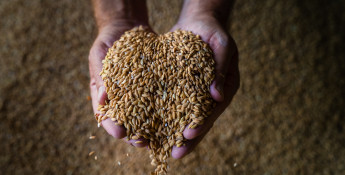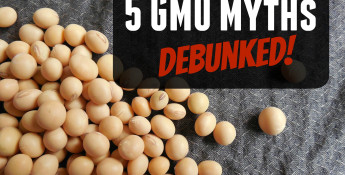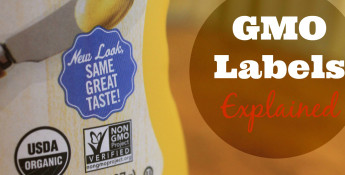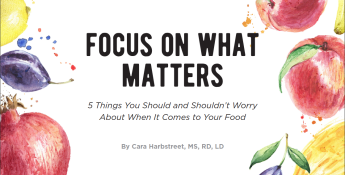By Hannah Becker on December 1, 2015
Five GMO myths debunked
GMO facts or fiction? We have the answers here

Like many controversial subjects, genetically modified organisms (GMOs) are plagued by a number of wildly popularized myths. We’ll explore five common myths and facts about GMOs; and discover the truth behind GMO agricultural products:
1) Myth: GMOs are a new thing
Fact: GMOs are not a new thing. Remember the Moravian monk with a passion for peas – aka Gregor Mendel? People have been genetically modifying crops for centuries. The agricultural products we produce today are the result of farmers selectively breeding plants with desirable traits, like pest or disease resistance. While geneticists in the past used selective plant breeding, today we’re able to expedite the process in a laboratory setting. By inserting desirable genes, geneticists are able to help provide better plants to grow better food.
2) Myth: GMOs aren’t necessary
Fact: The world’s population is expected to increase by 2 billion by 2050. These people need to eat, and while the overall population is increasing, the numbers of farmers and ranchers are not. But this isn’t just red-state conspiracy theorist talking - both the World Bank and the United Nations have stated our current production capabilities will not be able to produce enough food to accommodate for the population jump. Fortune even claims our next world war will be fought over – you guessed it – food. So what’s the solution to the impending food crisis? GMOs.
3) Myth: GMOs are in all our food
Fact: Actually, the majority of our food is non-GMO. Here’s the line-up of agricultural products that offer GMO varieties: alfalfa, canola, cotton, corn, papaya, soybeans, squash, and sugar beets. You may have seen some news headlines about governmental approval of GMO potatoes, rice, tomatoes, and wheat, but none of these products are available in grocery stores.
4) Myth: GMOs cause cancer
Fact: In 2012, the University of Caen in France claimed that ingestion of GMO corn correlated with tumors in lab rats. This isolated research finding got a lot of buzz, sending many consumers into an unnecessary GMO-paranoia. Less than a year after the study was published, the University of Caen retracted their conclusions and the results were discredited due to faulty test methods. Since then, thousands of peer-reviewed studies have been published, assuring us that GMOs are no more dangerous than non-GMO products.
5) Myth: GMOs present no health benefits
Fact: In 2012, the World Health Organization reported more than 250 million preschool children were affected by Vitamin A deficiencies, due to their rice-based diets. GMO rice, modified to contain additional beta carotene (Vitamin A) was developed to provide these populations with the nutrition they needed. This agriculture innovation of “golden rice” has been credited with saving more than 2 million lives on an annual basis. If we waited for nature to naturally modify Vitamin A deficient rice plants vs. genetically modifying these plants in an expedited laboratory setting, millions of children would have died. That’s right ladies and gents – GMOs saved millions of lives.
Over the next few months, we’ll continue to explore GMOs, food labeling and regulations. In the mean time, read my first post about GMOs here.
If you have any questions or topic suggestions as we continue on this educational journey, feel free to e-mail me at beckerh@kfb.org. Would love to hear from you!
Did you enjoy this story? You might also enjoy these:


















